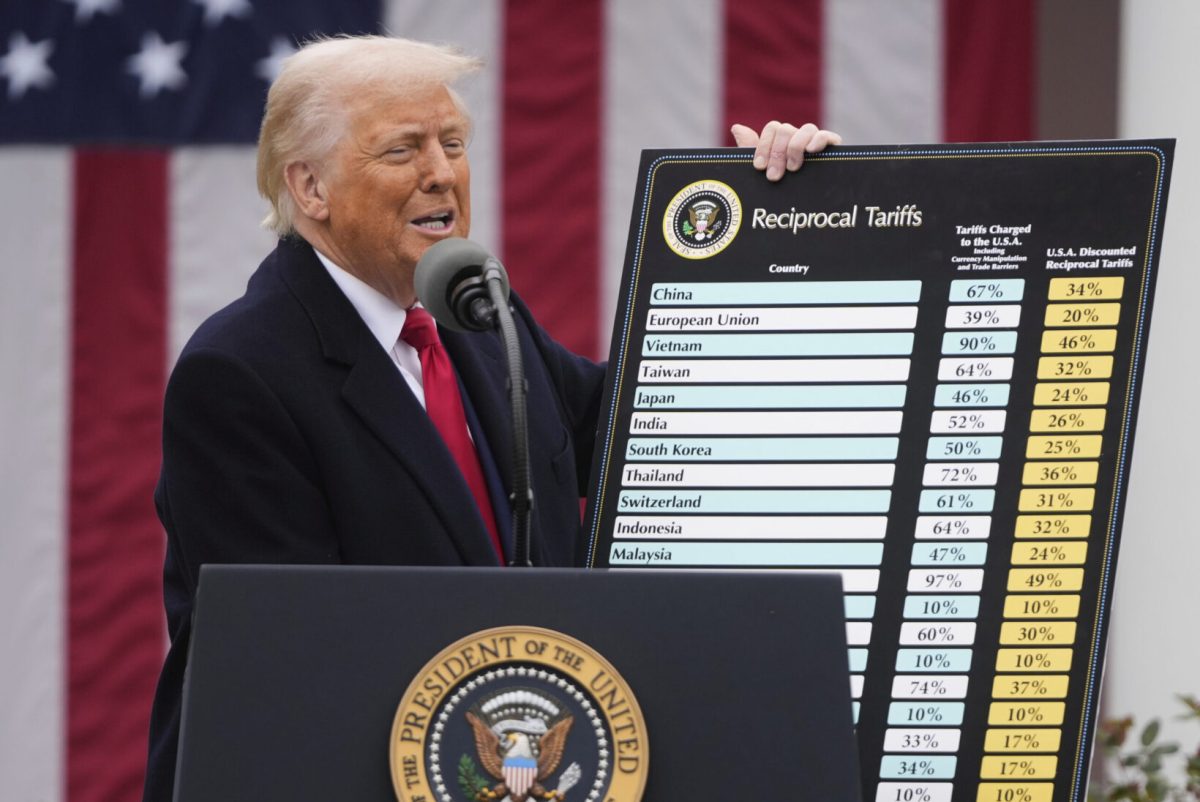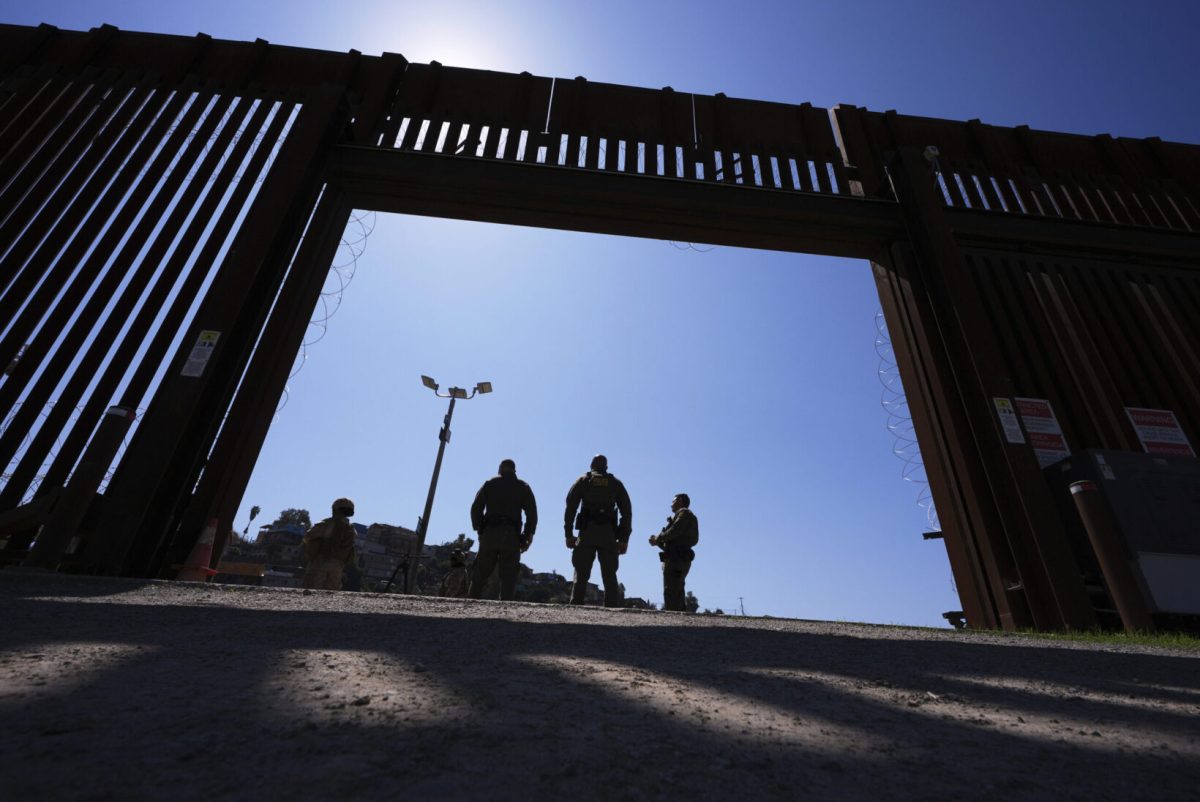Shortly after the markets closed on April 4, President Donald Trump announced what he called “reciprocal tariffs” on countries he believed were “ripping [the US] off’ in terms of trade. The highlight of the announcement was when Trump held up a sign with the supposed tariff that other countries charged the United States, and the subsequent tariff that Trump imposed on those countries.
The sign listed tariffs of 34% for China, 20% for the European Union and 46% for Vietnam, among many others.
Trump’s tariff announcement was not unexpected after his continual, staunch advocacy for increased tariffs. Trump pledged during the 2024 campaign trail to enact a 60% tariff on China and a 10% tariff on imported goods from all other countries.
Many, including analysts on Wall Street, dismissed his remarks as political talking points—until recent declines in the stock market suggested otherwise.
On April 9, however, Trump announced a 90-day pause on all tariffs, excluding China, on which he imposed a 125% tariff. His goal was to inspire countries to begin negotiations on new trade deals. According to Trump, over 75 countries have reached out to the United States for trade talks.
No deals have been made with any countries as of now. And if they are not reached before the 90-day deadline, it will have consequences for the entire country, and North Carolina specifically.
According to Axios, North Carolina imports nearly $5 billion worth of goods per year from Canada. Agriculture is among the sectors most vulnerable to these tariffs. Gaphel Kongtsa, the director of international policy with the Canadian Chamber of Commerce, said, “The United States sources nearly 80% of its fertilizers from Canada, which includes farmers in North Carolina.”
According to a 2024 report by Mike Walden, economist at North Carolina State University, the agriculture industry had an $111.1 billion economic impact in the Tarheel State.
“These measures will ultimately have an inflationary effect that will be felt very broadly,” Kongtsa said.
Trump’s tariffs are also expected to impact Western North Carolina (WNC). This region is still recovering from a devastating hurricane that resulted in many deaths and displacements. The primary industries in Western North Carolina are services and tourism.
“People always hold back a little bit when they’re uncertain about what the future’s holding. That’s the last thing we need right now,” University of North Carolina Asheville Department of Economics chair Leah Greden Mathew said.
Since WNC relies heavily on consumer spending, a negative outlook on the economy could push people to cut back, especially on travel to the region’s popular tourist attractions.
By and large, many Republican politicians in North Carolina have been supportive of Trump’s new tariffs. U.S. Rep. Chuck Edwards, who represents North Carolina’s 11th District, wrote on social media,
“Many countries are taking advantage of the United States by imposing tariffs against us while we don’t have reciprocal tariffs against them […] I support (Trump’s) plan to use them again to create a more level playing field and secure fairer trade deals for America.”
However, some Republicans in North Carolina have been skeptical about Trump’s tariffs, including U.S. Sen. Thom Tillis.
During a Tuesday hearing featuring Jamieson Greer, the top White House trade negotiator, Tillis said, “Whose throat do I get to choke if this proves to be wrong?” Tillis was particularly concerned about the tariff’s impact on the agricultural sector in North Carolina.
North Carolina residents have been both receptive and concerned about these new tariffs. Mark Miller, the general sales manager at BMW of Asheville, said they are “hopefully optimistic” about Trump’s tariffs. “Well over half of what we sell is coming from an hour down the road, which I have to think offsets some of the import costs,” he said.
Ray Templeton, a resident of North Carolina who has lost money in the stock market due to these tariffs, remains calm. “This too will pass,” Templeton said. “We’ll be good. Don’t ever bet against the United States. You’ll lose every time. It’s a bad bet.”
Among those expressing concern is North Carolina beekeeper Jim Hartman, who voted for Trump three times, believing that a second term would benefit farmers. “I never thought I would lose this much money,” he said.
With the 90-day pause in place, it is difficult to gauge how Trump’s tariffs will turn out. Some believe they will lead to fairer trade, while others worry about rising prices and economic trouble. For now, we will have to wait and see what the full impact will be.










